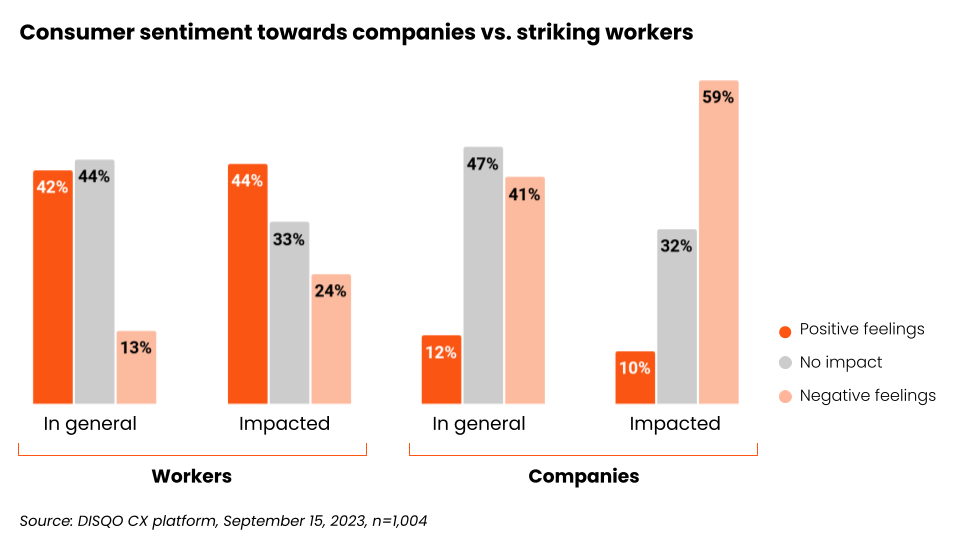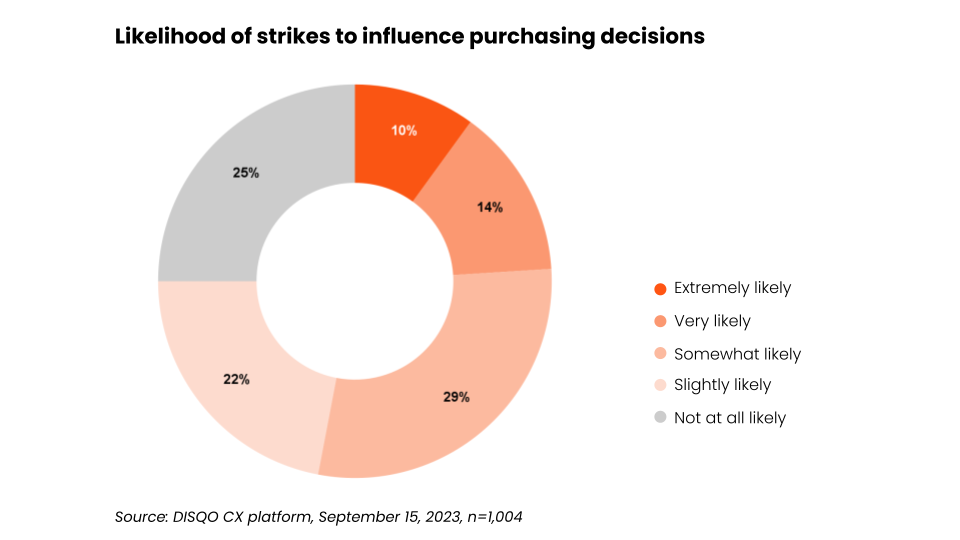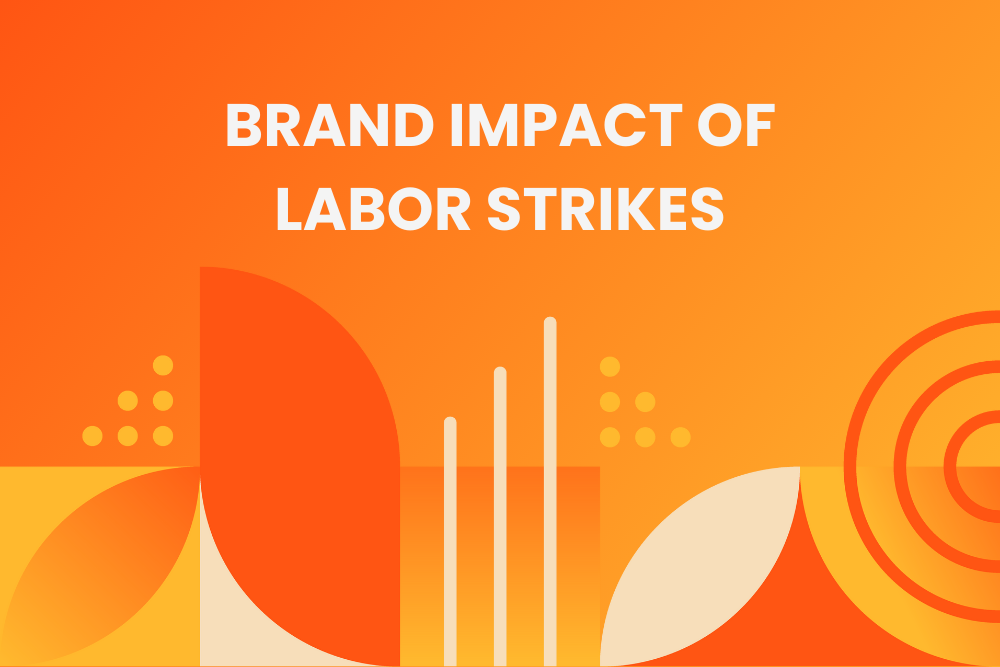Consumer activism and strikes are the new landscape brands can't afford to ignore
Brands today operate in an environment that is more dynamic and sensitive than ever before. Consumers aren’t just passive recipients of product messages; they’re active stakeholders who respond to broader socio-political narratives. And labor strikes is one of these powerful narratives that can impact both brand perception and consumer purchase choices.
Recent data from customer experience (CX) platform DISQO provides crucial insights for brand marketers, especially those in the auto and entertainment sectors. The study came at a pivotal time - the onset of the United Auto Workers strike. But why should brand marketers pay heed?
Labor strike awareness is high
Three-quarters of consumers are aware of the UAW strike, compared to 91% awareness of the entertainment industry strikes. Given the relatively shorter duration of the UAW strike in comparison to those in the entertainment sector, one thing is clear: the automotive industry is under the consumer microscope.
→ DOWNLOAD NOW: LGBTQ+ Advertising: From Boldness to Backlash
Consumer sympathies lie with the striking workers
In the tussle between companies and workers, the latter is winning the sympathy battle. A significant 42% of U.S. consumers feel positively about workers on strike, whereas a mere 12% felt the same for the affected companies. This trend becomes even more pronounced among consumers who've experienced the impact of strikes firsthand. For them, negative feelings towards the company jump to 59%.

Consumers’ wallets echo their sentiments about worker grievances
But it's not just about sentiment; it's about consumer activism as well. Consumers are showing a readiness to support strikers. A clear majority, 85% to be precise, would at least consider support through boycotts or other actions. This intent is reflected in purchasing decisions too, with three-quarters admitting that strikes could influence where they spend their money.
The data reflects an empowered consumer base. A robust 83% felt they had a role, whether minor or substantial, in supporting or opposing strikes. This is an age of consumer activism, where purchases aren't just transactions, they’re statements.

Strikes aren't viewed as political ploys
Brands often fear that strikes could be seen as politically motivated tactics, potentially further alienating parts of their consumer base. But, according to the study, the majority (52%) believe strikes are about worker rights, not political agendas.
Takeaways for brand marketers:
- Awareness is key: Given the high awareness around strikes, brands can't afford to stay silent. Crafting and pre-testing a well-thought-out communication strategy is essential.
- Empathy matters: The prevailing sentiment is pro-worker. Brands need to show empathy, understanding, and proactive measures to address worker grievances.
- Engage constructively: Instead of defensive strategies, brands should focus on constructive engagement, seeking common ground and sustainable solutions.
- Transparency is non-negotiable: In the age of information, half-truths won’t work. Brands need to be transparent about their stands and actions.
- Prepare for the long haul: Strikes may not be fleeting events but drawn-out narratives. Brands need to be prepared both in terms of communication and business strategies.
While strikes might seem like internal challenges, they have profound external ramifications in the age of consumer activism. Brands that proactively address, communicate, and resolve these challenges stand to gain in both reputation and revenue. Those that don’t, risk not just their image, but their bottom line.




